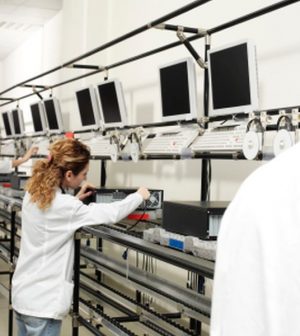- Could Your Grocery Store Meat Be Causing Recurring UTIs?
- Are You Making This Expensive Thermostat Error This Winter?
- Recognizing the Signs of Hypothyroidism
- 10 Strategies to Overcome Insomnia
- Could Artificial Sweeteners Be Aging the Brain Faster?
- Techniques for Soothing Your Nervous System
- Does the Water in Your House Smell Funny? Here’s Why
- Can a Daily Dose of Apple Cider Vinegar Actually Aid Weight Loss?
- 6 Health Beverages That Can Actually Spike Your Blood Sugar
- Treatment Options for Social Anxiety Disorder
Shift Work Might Raise Your Odds for Severe COVID-19

While shift workers aren’t more likely to get infected with COVID-19, they are more likely to suffer from severe disease requiring hospitalization, researchers warn.
Norwegian scientists studied the risks of both shift workers and people who worked in face-to-face jobs in terms of COVID-19 infection and severity. They did this through online surveys of more than 7,100 people from 16 countries.
The researchers found that those in face-to-face jobs were more likely to be infected.
“However, they did not have a higher risk of getting a more severe outcome of the infection, compared to those not working face-to-face with others,” said study first author Bjørn Bjorvatn, a professor of medicine at the Department of Global Public Health and Primary Care at the University of Bergen in Norway.
Shift workers did not have a higher risk of getting infected, which Bjorvatn said is likely because of the contagiousness of the virus and the high infection rate throughout society.
However, they had a risk of being hospitalized with the virus that was almost sixfold higher than daytime workers.
This supports the idea that sleep deprivation negatively affects the immune system, according to the study.
“Other studies show that the response to vaccination is poorer in sleep-deprived individuals. Therefore, shift workers should take their vaccines after a good night sleep,” Bjorvatn advised in a university news release.
The findings were published recently in the journal Chronobiology International.
More information
The U.S. Centers for Disease Control and Prevention has more on COVID-19.
SOURCE: University of Bergen, news release, Dec. 13, 2022
Source: HealthDay
Copyright © 2026 HealthDay. All rights reserved.










